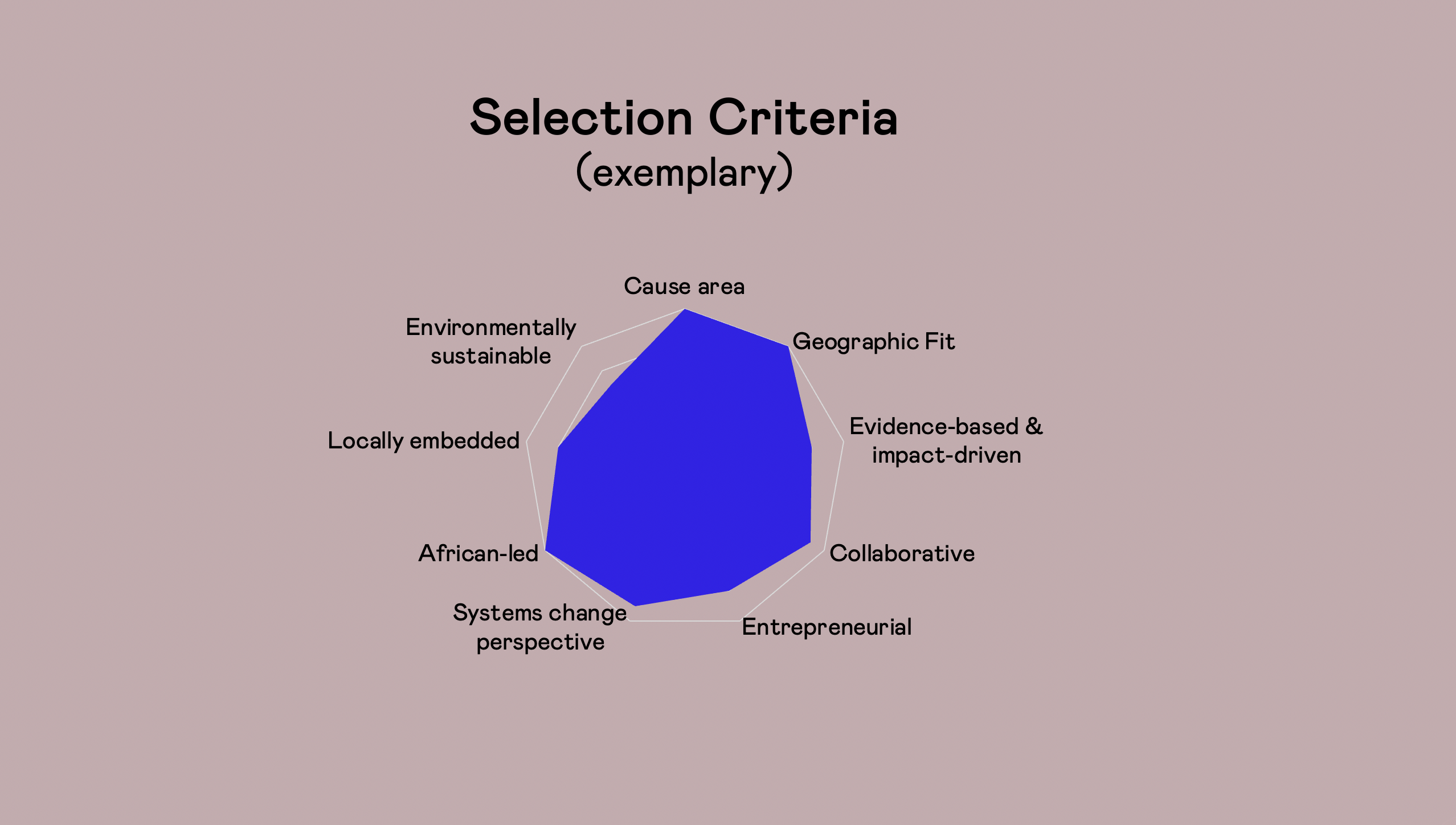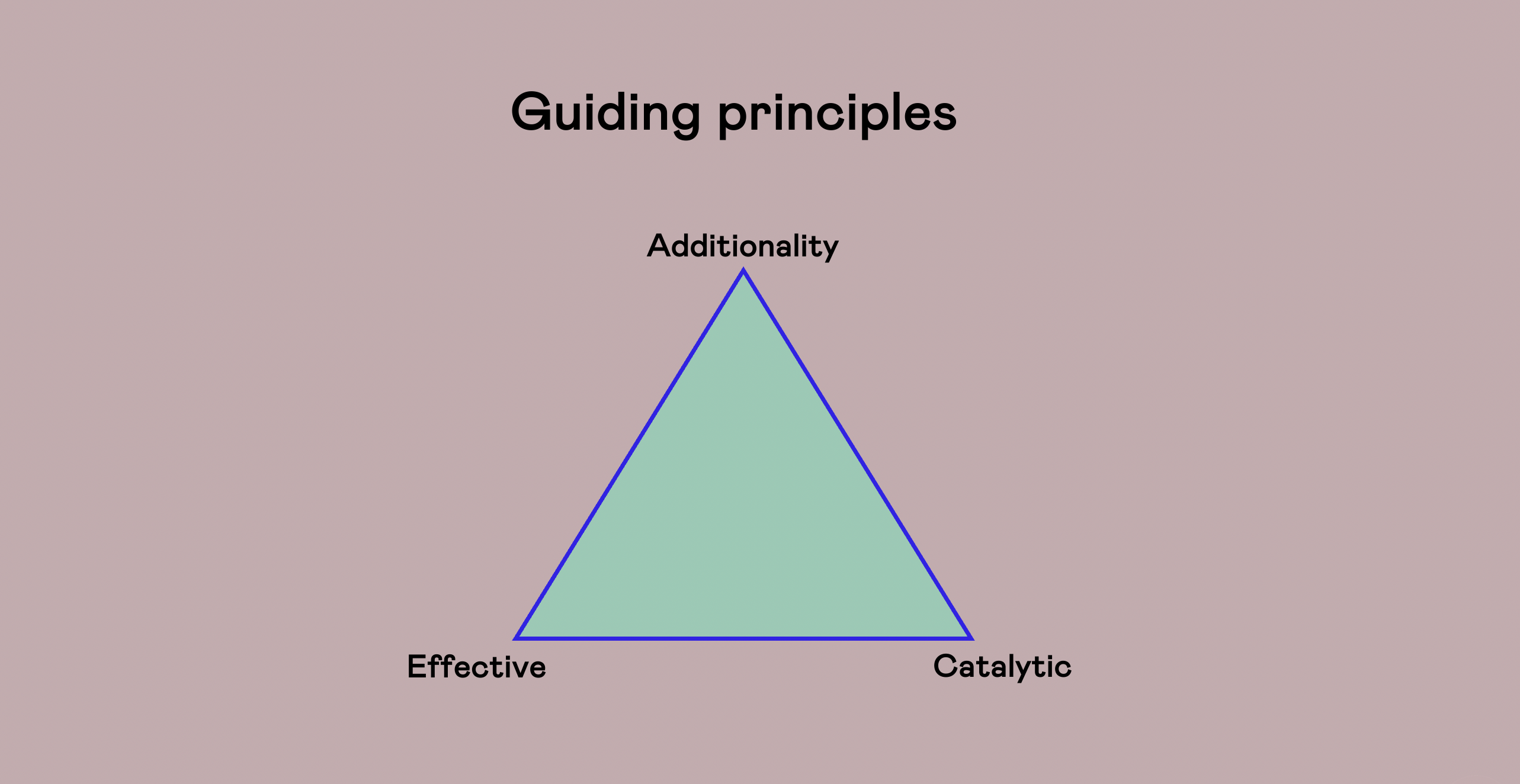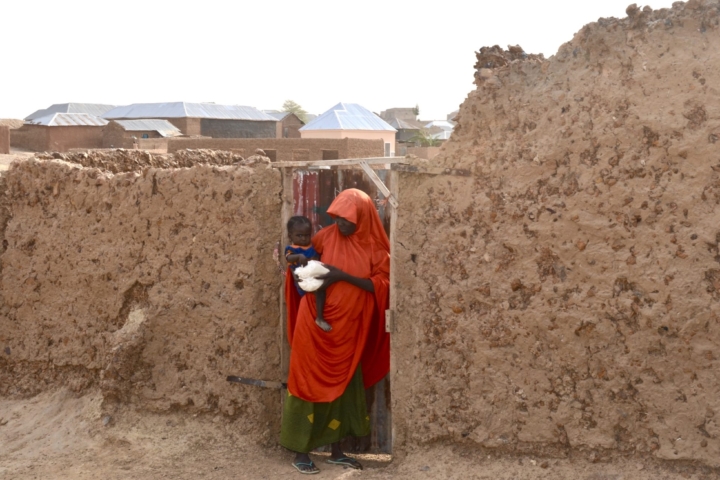One year of Azurit Foundation: Recap of our Strategy Development
By: Lea Buck
One year ago, we started Azurit Foundation. It has been a fantastic first year in which we learned a lot and met great new people. After one year, it’s time to launch our blog series. From now on you can read posts from us on the topics that we care about. We’ll regularly invite guest writers to share their perspectives and experiences with you as well.
Our first post is about our strategy development and really long. We have included a look at different aspects of our strategy, namely our geographical and topical focus areas as well as grantmaking approach. We’ll consider opportunities, as well as restrictions, that have influenced our strategic decisions.
How we started
Azurit was set up by a small group of like-minded people. We found many causes we cared about; the tricky thing was narrowing them down. We are driven by a fundamental belief in human rights and just societies. Our responsibility is to contribute to the achievement of these beliefs in a global setting. We are optimists at heart and also see and celebrate progress and opportunities.
Obviously, our motivation has informed the definition of our focus but we didn’t want to be driven solely by emotions. In addition, we believe in evidence-based solutions and took some inspiration from Effective Altruism in that regard. Based on MacAskill (2015), there are three main criteria to consider:
- Scale / importance: What is the magnitude of the problem?
- Neglectedness: How many resources are deployed (and how well) and are there reasons that the problem can’t / won’t be solved by governments or markets?
- Tractability: How easy is it to make progress? Are solutions available or can be developed? (also referred to as Solvability)
We are not full-blown effective altruists and don’t believe in fully rational decisions. Not all information to make an objective decision exists and not everything can be measured. Even if that were the case, there are and will always be moral decisions and assumptions involved. Nevertheless, we believe these criteria provide a helpful framework.
We look at “neglectedness” and “tractability” not just in terms of the problem but also factor in our size: Where and when do we make a difference with small to medium-sized grants and limited human resources? And this is what we see as our additionality: what would have happened anyway? Additionality considerations have been highly relevant in defining our focus and are also key when considering individual grants.
We took all of that into consideration and as a result we don’t have one very specific topic but rather a combination of different aspects that lead to our current thematic focus. More on that below.
How we chose our geographic focus
We believe that every human being should have the same opportunities and rights. There aren’t any societies that have achieved equal opportunities but levels vary strongly around the world – regardless of whether one looks at the distribution of wealth, life expectancy, access to health, education and so forth. The list is long. But not the randomness of where a child is born should decide their opportunities. And the progress of the last centuries shows that change is possible. (Rosling, 2015)
The challenges many countries in the Global South face are connected to the wealth in other parts of the world. We think globally and hence we also look at responsibility from a global perspective. We only have limited resources and it makes sense to spend them there where the need is highest and they can make the biggest difference. These are low-income countries (LIC) in which the population lives on an average of $1,045 or less GNI per capita. Spending USD 100€ on a person living on $1000 p.a. has a different relevance than spending it on a person with an income of, say, $40,000. Around 700 million people live in LIC, with the majority of LIC being in Africa. As we stated in the beginning: we are optimists and looking at the statistics there is a reason for that. Things are improving: school enrollment, life expectancy, and even CO2 emissions going down. So, things are changing; there are extremely high needs but also opportunities for leapfrogging and we want to build on this.
Less than 10% of German foundations cover international topics. In the US less than 8% of giving went to International Affairs in 2020. There is a lot of justified criticism towards development cooperation. Structures in the Global North contribute to global inequality and it is important to address these. At the same time, it’s strange to expect countries (or societies) in the Global South, especially if one considers historical and continuing root causes for global inequality, to solve their challenges with the little funding that is available. And we are not convinced that these issues will be solved without putting the people in LIC at the centre. It is important to be aware of the criticism and try to structure the funding in ways that take it into account (more on that in our forthcoming post on our grantmaking approach).
How we chose our topics
We would love to cover all topics we care about. Unfortunately, our resources are limited; though, with a narrower focus we can be more strategic. Given our emphasis on human rights and (social) justice, we believe that representation and diverse voices are essential. It is difficult to fully take part in society when one lives in absolute poverty or has no access to quality education and independent information. When large groups in society cannot fully take part there is no good representation. It is our hope that we contribute to the groundwork for more democratic representation and a diverse and strong civil society. That is also why we focus on locally-led organisations and participatory approaches. We think that solutions are more effective and sustainable if there is strong local ownership. Moreover, systems change should involve the people that are most affected by it. And lastly, at the moment, most funding goes to non-local organisations, so our additionality is higher if we fund locally.
We believe in evidence-based solutions, but also think we should continuously develop and try to innovate as we haven’t found the “cure” for all problems yet. We are aware of a potential conflict between these two. Focussing on evidence-based solutions can lead to a focus on “what works”, instead of finding new solutions. However, we do see new solutions to improve income, skills and access to information of marginalised communities that are at the intersection of innovation and evidence and have the potential for scale. For instance, by using evidence-based solutions as the starting point or by collecting evidence in fields that are not yet well researched.
Funding young local organisations can be risky, though it also has a higher potential for us to be catalytic. Ideally, our willingness to take risks leads to a leverage effect: our grantees can professionalise and create a track record with which they are able to access funding that was not available to them before.
In general, systemic solutions like policy reform are more effective – if successful. That is why we look for approaches that go beyond direct interventions. Often that means there is research and/or an advocacy element in it, but we also see other ways to be systemic. Furthermore, big-systems-change approaches shouldn’t be looked at as top-down but involve people that are (potentially) the most impacted by them. We hope to enable use cases that strengthen marginalised voices and offer input for larger interventions, thereby having a systemic effect.
To sum up, our mission is to fight injustice by funding evidence-driven systemic solutions that are led by the people who are most affected by it, which means we support (early-stage) LIC-led initiatives that help improve lives through systematic, sustainable, and innovative solutions to create income, skills and access to knowledge.
Our grantmaking and view on legitimacy
There is lot of valid philanthropy criticism. Philanthropists are privileged, not democratically legitimized, yet take influential decisions (though we won’t compare ourselves to funders who have the means to influence entire countries or topics). Often decision-makers in foundations have biases (as we all have) and may support organizations or projects that are not changing the status quo, for instance by giving grants to other privileged people with similar backgrounds instead of marginalized communities. For instance, only 0.4% of international humanitarian assistance went directly to local and national NGOs in 2018, as did only 5.9% of funding by US foundations for Sub-Sahara Africa.
There are also valid reasons for philanthropy. Philanthropy can take risks, provide flexibility, and create room for diversity and opportunities that more bureaucratic and formalized public funding cannot.
Bringing this together, we believe that philanthropic foundations should have several characteristics to be legitimate:
- Question own biases and be aware of privilege
- Remember that grantees in most cases will have a better understanding than we do
- Give money to civil society organizations instead of running their own projects
- Have diversity in internal structures (Azurit Foundation is not there yet)
- Take risks (and de-risk funding opportunities to leverage funding from other sources)
- Be flexible and provide ideally unrestricted funding
- Collaborate with others to increase learnings and avoid duplication
- Give grants to organizations that are led by people who have, often because of biases, less access to funding
- Take grant decisions that are based on evidence
From our perspective it is more effective to let grantees do their job instead of keeping them busy with reporting or not allowing flexibility. We can’t create an impact at all without our grantees. We also won’t gain a holistic understanding, learn for ourselves or be able to change course if we are not receptive and don’t have relations in which grantees are able to be honest and frank with us. That is also why our reporting processes focus on learning instead of control. Have a look at our Oral Reporting summary (in German).
Why we focus on evidence and careful selection
Trust-based philanthropy shouldn’t be confused with a philanthropy approach that is random. In order to build trust, you have to know and understand each other. And while philanthropic funding is more flexible than public funding it is still enjoying tax-relief which means there is, not just for ourselves, a duty to spend it effectively. Therefore, we take our grant decisions seriously and carefully assess each opportunity against our criteria. We need a really good understanding of our partners for that: How is their work evidence-based? What are their goals and objectives and how do they validate whether they achieve them? What are the details of their approach? How do they work? Who are they?
We have high expectations when it comes to impact assessments. We do expect impact assumptions that are based on evidence and even more so, we expect very clear strategies how these assumptions are (ideally data-driven) validated. So that they don’t simply stay assumptions. We know how complex this can be and that this is probably the most challenging of our selection criteria. We are looking for partners who have a deep intrinsic motivation to understand their own impact. All our grantees “measure” (or assess) their impact. We expect that not for us but for the sake of effectiveness. Which is why we don’t prescribe how it is validated or let grantees report on indicators that we have defined. As a result, we don’t look at impact on a portfolio level but on the individual project level. Even though aggregated impact/ outcomes KPIs on a portfolio level are sometimes really nice in theory, they come with a lot of extra work for grantees and restrict flexibility. Our funding is mostly unrestricted, and we are glad if our grantees use it to strengthen their evidence base.
We keep learning
As a young organization we see our strategy development as an iterative process that is informed by theory as well as practical lessons learned. We are curious to try out different avenues, to partner with others, and learn together with the wonderful people in our growing network. Along the way, we will adapt our strategy based on our learnings. We are happy to hear your thoughts in that process!


This is some of the literature we worked with (some in German):
Bates, Mary Ann; Glennerster, Rachel (2017): The Generalizability Puzzle. Stanford Social Innovation Review. Online.
Bosch, Ise (2007): Besser spenden! Ein Leitfaden für nachhaltiges Engagement. Beck’sche Reihe.
Brest, Paul; Harvey, Hal (2018): Money Well Spent: A Strategic Plan for Smart Philanthropy. 2nd Edition. Stanford University Press.
Buchanan, Phil (2019): Giving Done Right: Effective Philanthropy and Making Every Dollar Count. PublicAffairs.
Bull, Gemma; Steinberg, Tom (2021): Modern Grantmaking: A Guide for Funders Who Believe Better Is Possible. London.
Development Initiatives (2019): Global Humanitarian Assistance Report 2019. Online.
Dreilinden; Wider Sense; Phineo (2022): Vertrauen Macht Wirkung. Ihre Ideen für die Stiftung der Zukunft. Online.
Foundation Center & Council on Foundation (2018): The State of Global Giving by U.S. Foundation 2011-2015. Online.
Gertler, Aaron (2021): The Effective Altruism Handbook. Online.
Giridharadas, Anand (2019): Winners Take All: The Elite Charade of Changing the World. Penguin.
Gugerty, Mary Kay; Karlan, Dean (2018): Ten Reasons Not to Measure Impact – and What to Do Instead. Stanford Social Innovation Review. Online.
Hickel, Jason (2017): The Divide: A Brief Guide to Global Inequality and its Solutions. Windmill Books.
Layode, Mosun et al. (2021): Disparitites in Funding for African NGOs. Unlocking Philanthropy for African NGOs as a Pathway to Greater Impact. African Philanthropy Forum & The Bridgespan Group. Online.
MacAskill, William (2015): Doing Good Better: Effective Altruism and a Radical New Way to Make a Difference. Guardian Books.
Navarro, Amanda (2021): Tough Questions We Asked Ourselves and Where it Took Us. Grantcraft Blog. Online.
Orosz, Joel (2008): Effective Foundation Management: 14 Challenges of Philanthropic Leadership – and How to Outfox them. AltaMira Press.
Reich, Rob (2019): Just Giving: Why Philanthropy is Failing Democracy and How it Can Do Better. Princeton University Press.
Rosling, Hans (2018): Factfulness: Ten Reasons We’re Wrong About The World – And Why Things are Better Than You Think. Sceptre.
Singer, Peter (2015): The Most Good You Can Do. How Effective Altruism Is Changing Ideas About Living Ethically, Yale University Press.
